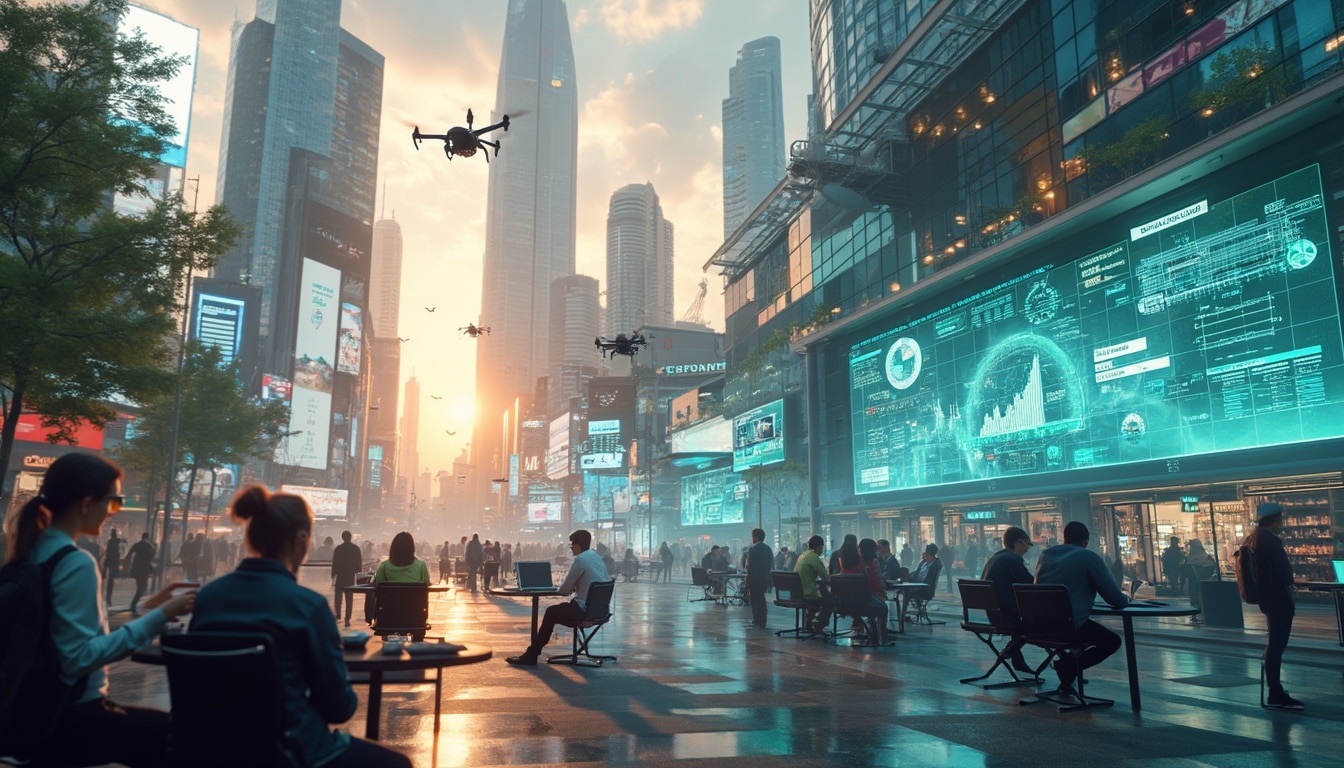Table of Contents
ToggleThe Impact of Digitalization on Retail
Digitalization is profoundly transforming the retail sector by offering new opportunities and challenges. Consumers, now equipped with connected devices, seek more personalized and accessible shopping experiences, prompting businesses to adapt to this new reality.
Among notable changes, the rise of e-commerce plays a central role. Retailers must develop robust online platforms that allow customers to navigate easily, make purchases with just a few clicks, and benefit from services such as fast delivery and free returns.
In addition to online sales, digitalization enhances the customer experience by combining physical and digital channels. Click-and-collect, for example, offers consumers the flexibility to shop online and pick up their items in-store, thereby strengthening the relationship between the brand and its customers.
Data analytics tools also play a crucial role. By utilizing big data and predictive analytics, retailers can better understand their customers’ buying behaviors, adjust their offerings, and anticipate market trends.
Social media is also positioning itself as a key platform in the marketing strategy of retailers. By leveraging these channels, brands can not only promote their products but also engage directly with their audience, creating a more personal and authentic connection.
Finally, cybersecurity has become a major issue for digital retail. Protecting customer data and ensuring a secure shopping environment is essential for maintaining trust and customer loyalty.
By adopting these technologies and strategies, the retail sector positions itself to meet the growing expectations of consumers while navigating an ever-evolving business landscape.
Transforming Shopping Experiences
Digitalization has profoundly transformed the landscape of retail, bringing new opportunities and challenges. Retailers must now adapt to a constantly changing environment where technology plays a key role in enhancing business strategies.
Our shopping experience is now influenced by technological innovations that make the customer journey smoother and more engaging. Consumers can interact with brands through multiple channels, including websites, mobile apps, and social media.
This transformation of shopping experiences allows retailers to:
- Personalize offers based on collected customer data.
- Utilize augmented reality to provide virtual product try-ons.
- Improve operational efficiency with real-time inventory management solutions.
Physical stores are also adopting digital solutions, such as interactive kiosks and mobile checkout systems, allowing for smoother checkouts and a richer shopping experience.
Moreover, the growth of e-commerce has prompted companies to integrate technologies like artificial intelligence and predictive analytics to anticipate consumers’ needs and optimize inventory management.
However, this digitalization must be achieved while adhering to cybersecurity standards, ensuring the protection of customers’ personal data. Companies must invest in reliable solutions to maintain consumer trust in the face of this evolution.
The challenges associated with digital transformation are numerous, but the benefits in terms of customer engagement and loyalty are undeniable. Retailers who can adapt to these changes will not only survive but also thrive in this continually evolving ecosystem.
Optimization of Operations and Processes
Digitalization is transforming the retail sector by improving operational efficiency and optimizing processes. Companies are adopting innovative technologies to meet the increasing expectations of consumers and remain competitive in an ever-evolving market.
One of the main impacts of digitalization is the optimization of operations. With digital tools, retailers can automate tasks such as inventory management, sales tracking, and performance analysis. This not only helps reduce costs but also improves decision-making.
Implementing cloud computing solutions provides companies with increased flexibility. They can access real-time data, facilitate collaboration among teams, and deploy changes quickly to adapt to market needs.
Another essential component of this digital revolution is the use of artificial intelligence and predictive analytics. These technologies enable retailers to better understand consumer behaviors, anticipate trends, and personalize customer experiences.
Digitalization also helps to enhance the security of transactions and data, a crucial element in the digital age. By integrating advanced cybersecurity solutions, companies can protect their systems against potential threats while reassuring their customers.
Ultimately, digitalization has a significant impact on the shopping experience. Consumers benefit from smoother interactions and easy access to information about products, which enhances their satisfaction and loyalty to the brand.











